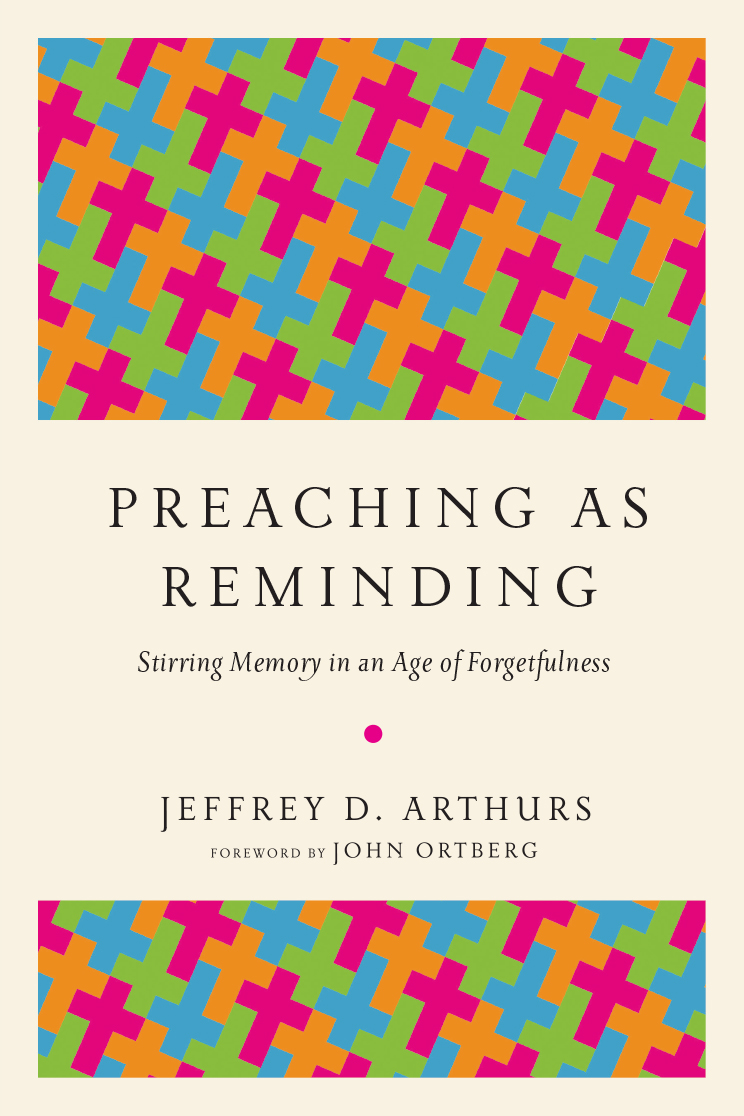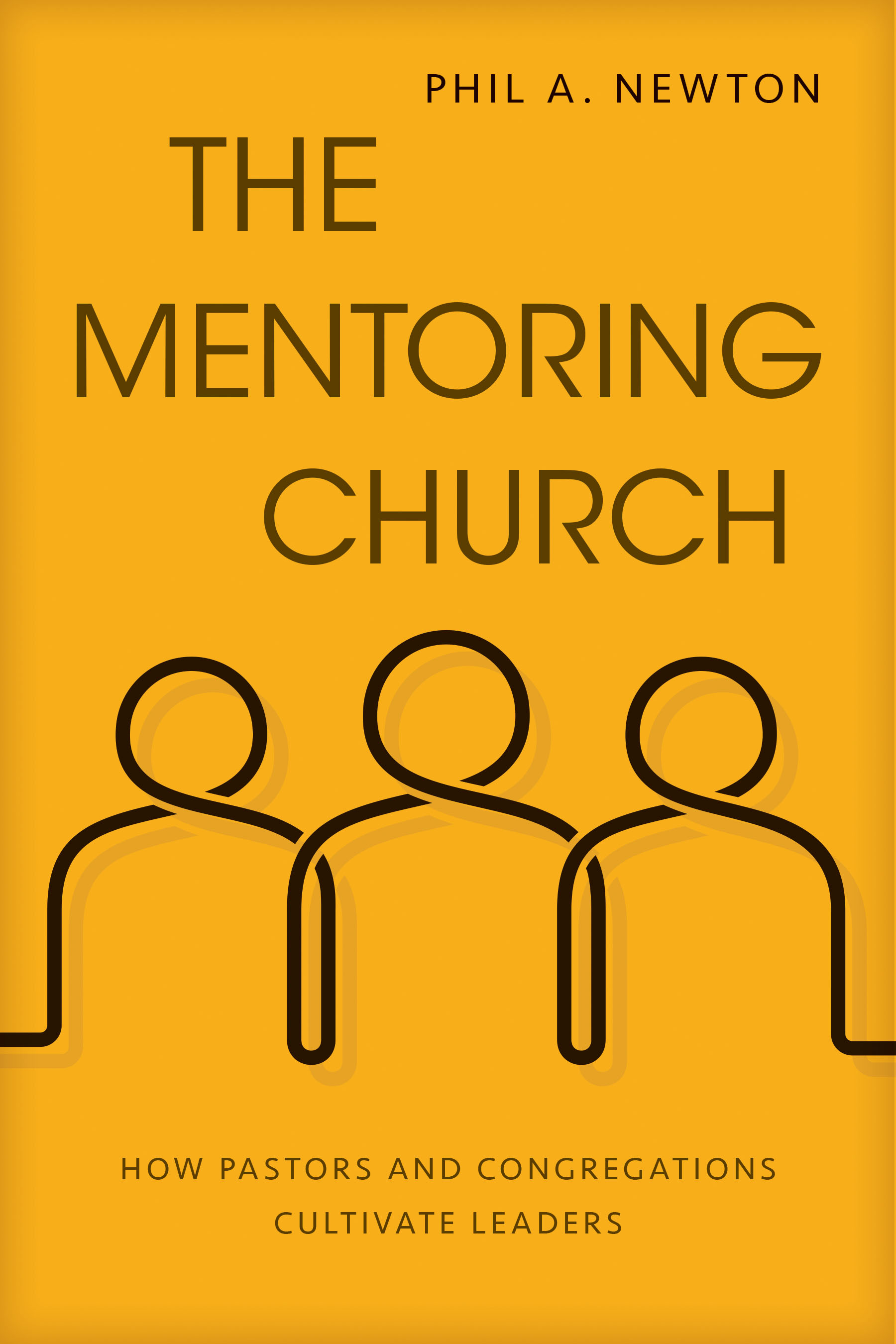The occasional thoughts of an ordinary man serving an extraordinary God. Come with me as we learn, teach, and laugh along the way.
Tuesday, October 31, 2017
Repent: 2 Corinthians 7
Monday, October 30, 2017
Sermon Recap for October 29: James 3
Thursday, October 26, 2017
Everybody Back to Work: Joshua 8
Wednesday, October 25, 2017
Book: Preaching as Reminding
Tuesday, October 24, 2017
No Offense: 2 Corinthians 6
Monday, October 23, 2017
Sermon Recap for October 22
Sunday Morning: Hebrews 12 (audio download link)
Wednesday, October 18, 2017
Book: The Mentoring Church
Now, some people are fortunate enough to be part of a church that already works out helping ministers learn how to live that way. However, many times our churches have not figured out a good way to develop life-invested leaders as an ongoing reality. That is where Phil Newton's The Mentoring Church comes in handy. Dr. Newton is the pastor of South Woods Baptist in Memphis, a church that I have known young ministers from. I say that to establish that what Newton writes about is not empty theory--he has walked down this road a good bit before writing about it.
On to the content: the first chapter shares the need, which most of us who pick this book up will already be aware of, but Newton explains and defines how the need should be addressed. The next three chapters deal with an extrapolation of the Biblical material regarding mentoring, looking at how and what Jesus did, followed with what we know of the early church and Paul's work in that vein.
From there, we go to a historical overview of the church's mentoring models across the years. Spread throughout are highlights of "dos" and "don'ts" drawn from them. Newton's approach is that we can learn from good and bad across the years.
The conclusion of the book looks at models currently in use by various churches. There is a definite effort here to identify models in keeping with the ecclesiology of modern evangelical-type churches. (None of his examples will help one become Pope, basically, because it won't really work in that strong of a hierarchy.) Each model is illustrated with examples and suggested ways to adapt it into a local church.
Now, the crux of the matter: I need this book. It is my deep desire to see the church I pastor become a launching ground for future ministers. If that is going to be the case, I need a guideline for to invest not only academically but relationally, and then a guide for the church to understand how they are the key.
This is the major point of Newton's book: how the congregation must be involved in mentoring. It is not merely a "pastors should train pastors" idea, but a "churches growing ministers" idea. In that vein, this is a great resource to extract a roadmap for the church.
I highly recommend The Mentoring Church.
(Note: I did receive a copy of this book for the review. I'll probably be buying a handful for my ministry team soon.)
Tuesday, October 17, 2017
Intense Life in Tents: 2 Corinthians 5
- 2 Corinthians 5:21 justifies the opening lyric in "Jesus, Messiah," about "He became sin who knew no sin...."
- There is a solid contrast here between walking by faith and walking by sight. The meaning there is pretty clear--we sometimes go without knowing for certain what we are supposed to be doing. It was not uncommon for ambassadors--they had to know the desire and character of their king and then go forth to do his work. Even if they had no maps to start with.
- Reconciliation (v. 18) is a two-way street. The joy is that God has come all the way, but we need to realize this is because of His strength, not out of weakness. We miss that point.
Monday, October 16, 2017
Sermon Recap for October 15
- Purification from sins (v. 3)
- Sufficiency of what has been said (v. 1-2)—quit adding “God told me/I felt Jesus say….” to your statements.
- Response! (v. 1-4, and the WHOLE OLD TESTAMENT!)
Tuesday, October 10, 2017
Weakly Stored Treasures: 2 Corinthians 4
Monday, October 9, 2017
Sermon Recap for October 8
Here is what you'll find: after each sermon title, there's an "audio" link that allows you to play or download that sermon's audio file. Then there should be an embedded Youtube Link to the sermon.
If you'd like, you can subscribe to the audio feed here: https://itunes.apple.com/us/podcast/east-end-baptist-church/id387911457?mt=2 for iTunes users. Other audio feeds go here: http://eebcar.libsyn.com/rss
The video is linked on my personal Youtube Page here: https://www.youtube.com/channel/UCJBGluSoaJgYn6PbIklwKaw?view_as=public
Sermons are stockpiled here: http://www.doughibbard.com/search/label/Sermons
Thanks!
October 8: Proverbs 18 (audio)
Saturday, October 7, 2017
A Personal Update
I thought I’d take a minute and give you an update on where we are and what we are doing. The “we” being the whole of the Hibbard family, though a good bit is just “me."
First of all, we’ve passed the 2 year mark here in East End. Actually, we passed it back in June. I think we’re getting used to life in the big city. Olivia is now fully legal to drive, and drive alone. We have the old gold van back working somewhat, but we’re still pretty much a one-vehicle family so she doesn’t drive much. That’s okay. It’s better for my stress.
After completing German and French across the last academic year, I was trying to choose between pursuing a Ph.D. or a D.Min. There were good arguments on both sides, and a good argument that I should have pursued an MBA or MPA instead. I looked into an MPA (Master’s of Public Administration), but as with a Speech Communications program I looked at, it was targeted at professionals with weekends to do school. I’m really a bit busy on Sundays, so I can’t do school that night.
It came down between doing a Doctor of Ministry through Truett Seminary, where Dr. Vang (who I had in college and *absolutely* wanted to study with again) is the big boss, or going back through B.H. Carroll, where I finished my Master of Divinity, for a Ph.D. The breaking point actually came down to seminar times—BHCTI will need 3 days in the Fall and Spring every year. Truett needed 3 2-week seminars, plus travel time. I couldn’t quite make the travel and time away happen.
So, I’m currently trying to sort out initial doctoral seminar work. It’s fun. At least, compared to breaking a bone, it’s fun.
What am I studying? Great question. I’m doing Christian Heritage. Beyond that, I’m kind of stuck. I’m supposed to be narrowing toward a focus, but having trouble with that.
Ann works for HEDUA/Well Planned Gal. She’s good at it :)
That’s what’s going on in our lives. One of these days, I’ll get back to writing for publications and other websites. But for now, it’s academics all day long and half the night.
Book: Emotionally Healthy Spirituality
Friday, October 6, 2017
Three Cs: 2 Corinthians 3
Monday, October 2, 2017
Sermon Recap for October 1
Before we get started—the news from Las Vegas is horrifying, which is becoming far too common. Do not become hardened to tragedy, even though it keeps happening and life must keep going for every one who isn’t right there in the midst of it.
Here is what you'll find: after each sermon title, there's an "audio" link that allows you to play or download that sermon's audio file. Then there should be an embedded Youtube Link to the sermon.
If you'd like, you can subscribe to the audio feed here: https://itunes.apple.com/us/podcast/east-end-baptist-church/id387911457?mt=2 for iTunes users. Other audio feeds go here: http://eebcar.libsyn.com/rss
The video is linked on my personal Youtube Page here: https://www.youtube.com/channel/UCJBGluSoaJgYn6PbIklwKaw?view_as=public
Sermons are stockpiled here: http://www.doughibbard.com/search/label/Sermons
Thanks!
Last night we had Darrel Ray from Arkansas Baptists with us, and he’ll be back next Sunday night. I’m saving his sermons for their own post. And for his permission to post them.
Sunday, October 1 (direct audio)
- Titus, one of Paul's troubleshooters
- Crete--the whole island: Minotaurs and Labyrinths, Cretans and Gluttons, In the Roman province of Cyrenaica, or Cyrene--think Simon of Cyrene. And possibly the extended family of Mark
- Establishing leaders for the churches
- So that Titus can go elsewhere (Dalmatia, perhaps? 2 Timothy 4)
- Pass on what you know
- Learn from others
- Not just sit there waiting your turn
- Or waiting to jump in and criticize
- Recognize that the main mission of the church is to reach the lost and to do so we need to know the Gospel
Sermon Recap for July 6 2025
Here is what you’ll find: there is an audio player with the sermon audios built-in to it, just click to find the one you want. You’ll also...

-
So I still, from time to time, get books to review. It works like this: I get a free book and agree to review it. Then I beg for an extensio...
-
Numbers 22 very well might be the inspiration for a certain furry movie character, but I’m going to fade a little bit away from talking don...
-
A couple of weeks ago, I ran through a few of my in-print organizational resources. Moving on from there, I thought I’d share the three main...



